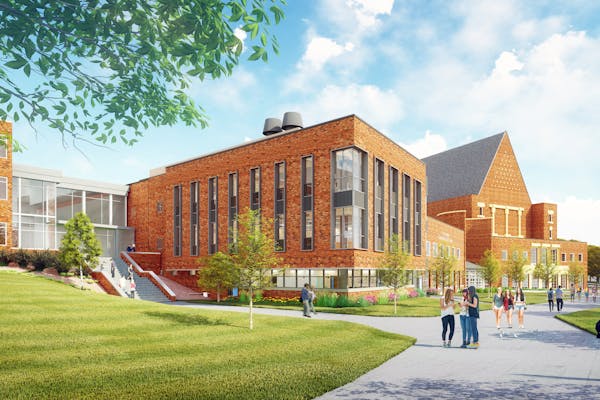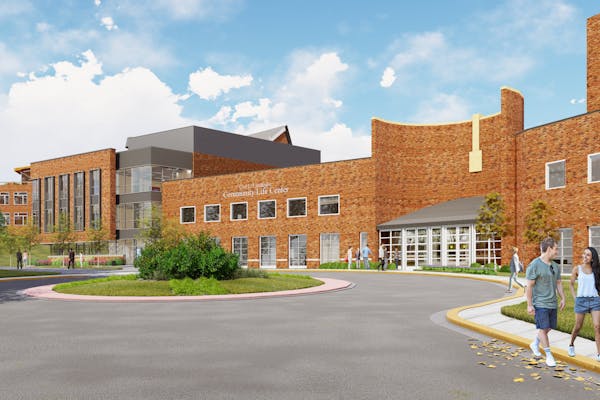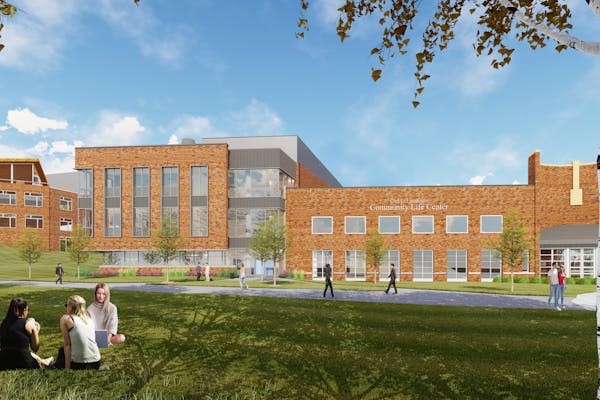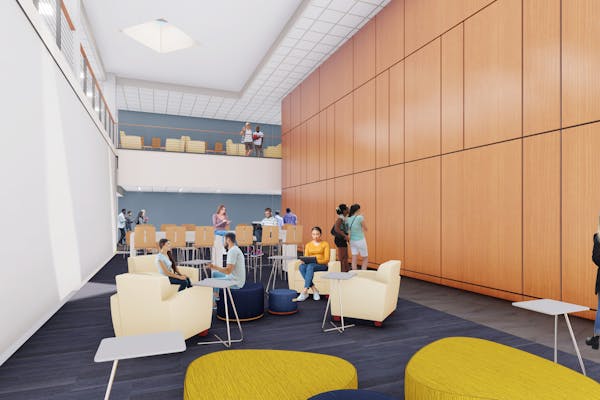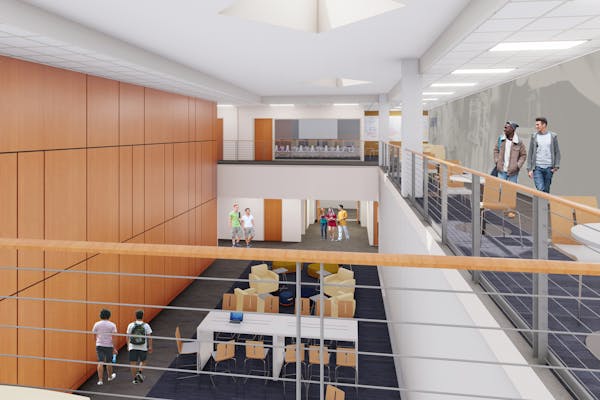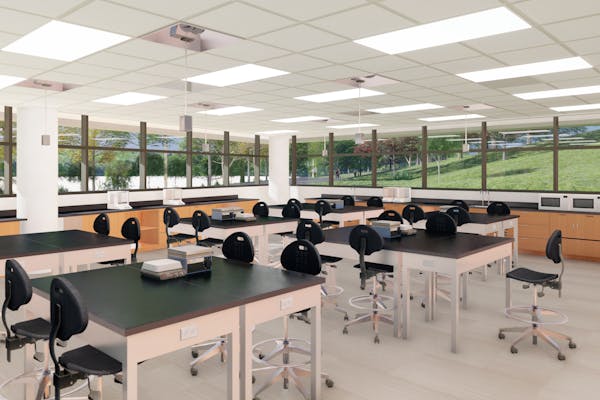Science Addition to Open in Time for Fall 2020 Classes
By Monique Kleinhuizen ’08, GS’16, new media strategist
April 03, 2020 | 7:45 a.m.

Exterior view of the science addition that will open fall 2020 at Bethel University
The Bethel community is adjusting to virtual learning and working as a result of COVID-19. But while they're away, construction is progressing on space meant to foster community of the in-person and hands-on variety.
Bethel is proud to announce that an 18,000-square-foot science addition is on track to be completed in time for fall 2020 classes, in partnership with McGough Construction.
It houses dedicated space for biology and chemistry and is part of a multi-year, donor-funded renovation and construction project designed to support the growing number—and size—of programs in the sciences, technology, engineering, and mathematics.
During the 1989-90 school year, there were 201 students majoring in biology, biochemistry, chemistry, or physics and engineering at Bethel. Thirty years later, that number has more than doubled, with 445 students—about 18 percent of the undergraduate student body—majoring in the sciences. In the past few years, new majors have been added in computer engineering, digital humanities, electrical engineering, mechanical engineering, neuroscience, and software engineering. Enrollment in computer science has more than doubled since 2011. And Bethel’s reputation and involvement in cutting-edge, global research has increased dramatically, necessitating more space and equipment for specialized work within existing majors.
Bethel’s trajectory mirrors national trends as well. The Bureau of Labor Statistics projects an 8.8 percent increase in the number of STEM jobs by 2028, which outpaces projected growth in non-STEM careers. But Bethel is bolstering its presence in these fields while maintaining a decidedly Christ-centered worldview and commitment to a robust, liberal arts learning experience. Students become not just great scientists and researchers, but well-rounded thinkers and leaders who tackle problems with integrity and ethics. In short, when the next public health crisis happens—like the one we've seen with COVID-19—we want more Royals at the table.
— President Jay Barnes
With questions like that in mind, the space is designed for Christ-centered community in tandem with cutting-edge research. There are interactive, multimedia-equipped classrooms; private labs for student-faculty research teams; and 27 fume hood-equipped work stations. An environmental studies storage space will function as a “mudroom,” of sorts, where students will be able to go outdoors for hands-on labs and then stow nets, waders, and other equipment in a dedicated room. A chemistry prep room will keep lab materials at the ready, with dishwashers and ample counter space. Perhaps most noticeable, a cantilevered portion of the building features floor-to-ceiling windows that give entry-level science classrooms and lounges stunning views of Lake Valentine.
“This feature alone is a significant step for us since our previous facilities have been on the second floor and in the center of the building. Being able to see God’s creation through the windows as we teach, and to be able to step outside quickly and easily to further investigate the beauty of the natural world, is an exciting new step,” explains Professor of Biology Jeff Port. He adds that labs are more intentionally designed and appropriately sized for the number and type of students in a typical course. “Many of our existing spaces were not originally designed as laboratory spaces ... This addition provides spaces for students to explore science at Bethel and find success in their academic experience.”
Professor of Chemistry James Christenson notes that there’s been tremendous growth within some program areas since Bethel’s Academic Center (AC)—where current science labs are located—was built in the 1970s. “Today, biochemistry is an integral pillar of the healthcare field and has become a popular major for future doctors, physician’s assistants, and medical researchers,” he says. Learning has also become much more hands-on in recent years, with dozens of Bethel student-faculty research teams working on projects for national and international publication.
Loading Gallery...
Science Addition: Opening Fall 2020
Artistic renderings of the science addition at Bethel University
— President Jay Barnes
Study the Sciences at Bethel
Explore Bethel's 100+ undergraduate areas of study, including excellent programs in the sciences, technology, and engineering. Admissions counselors would love to answer your questions about specific majors, this new space, and more—and we'd love to have you visit as soon as the labs are open again.
